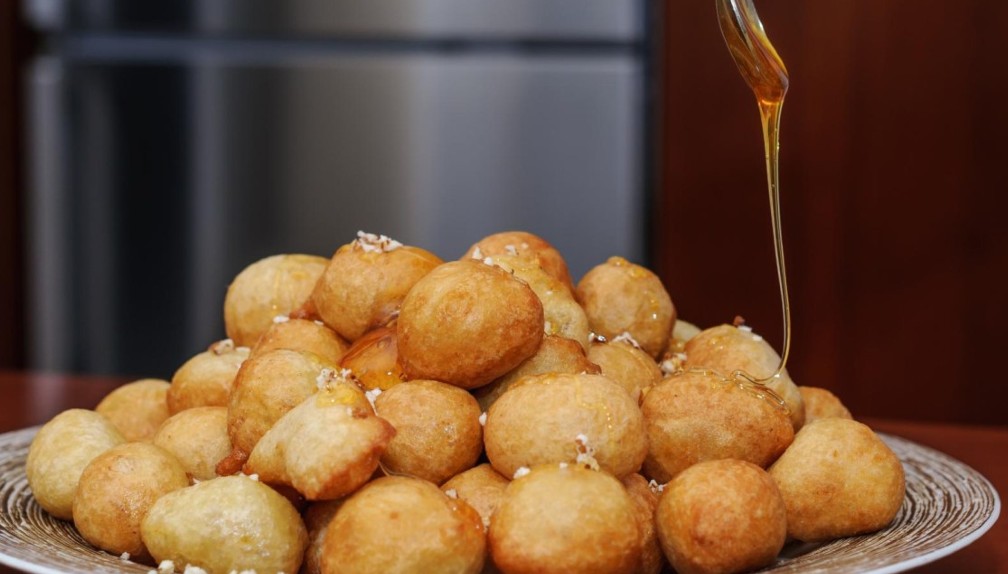The recipe and Greek treat we’ve all been waiting for! Nobody can forget the sweet, puffy texture of loukoumades and now, in the lead up to Greek easter, is the time to indulge in the traditional treat.
They’re considered the oldest recorded Greek dessert and can be traced back to the first Olympic Games of 776 B.C. They’re traditional eaten during the Greek Easter period.
The perfect Greek honey puffs are crispy and golden on the outside and fluffy and airy in the inside. Here’s how to create the best recipe at home.

Ingredients
- 200g self rising flour (7 oz.)
- 50g corn starch (1.7 oz.)
- 280g water (9.8 oz.)
- 9g dry active yeast (1 1/2 tbsp)
- 1 tbsp honey
- 1 tsp salt
- 150g honey for garnish (5 oz.)
- 1/4 cups chopped walnuts for garnish
Method
- To prepare this delicious Greek honey puffs recipe, start by dissolving the yeast in the water. Cover with plastic wrap and allow to rise for about 5 minutes, until it starts bubbling.
- In a separate bowl add the flour, corn starch and salt and blend to combine. Add the flour mixture in the yeast mixture and pour in the honey. Whisk all the ingredients together, until the batter is smooth. Cover the bowl with plastic wrap and let the dough rise for about 30 minutes.
- Into a medium sized frying pan pour enough vegetable oil to deep fry the loukoumades. Heat the oil to high heat until hot. Test if the oil is hot enough by dipping in some of the dough. If it sizzles the oil is ready or check its temperature. It should read 160C or 320F.
- Take a handful of the dough in your palm and squeeze it out, between your thumb and index finger, onto a tablespoon dipped in water. Then drop it in the oil and fry until golden. Repeat this procedure until the surface off the pan is comfortably filled. It is important to dip the spoon in a glass of water every time, so that the batter doesn’t stick on it. You want the spoon to be covered in water but not filled with it.
- While being fried, use a slotted spoon to push the honey puffs into the oil and turn them around, until golden brown on all sides. Place the loukoumades on some kitchen paper to drain and repeat with the rest of the dough.
- When done, place these delicious golden Greek honey puffs on a large platter, drizzle with (heated) honey and sprinkle with cinnamon and chopped walnuts. Enjoy!
Recipe sourced by: My Greek Dish
